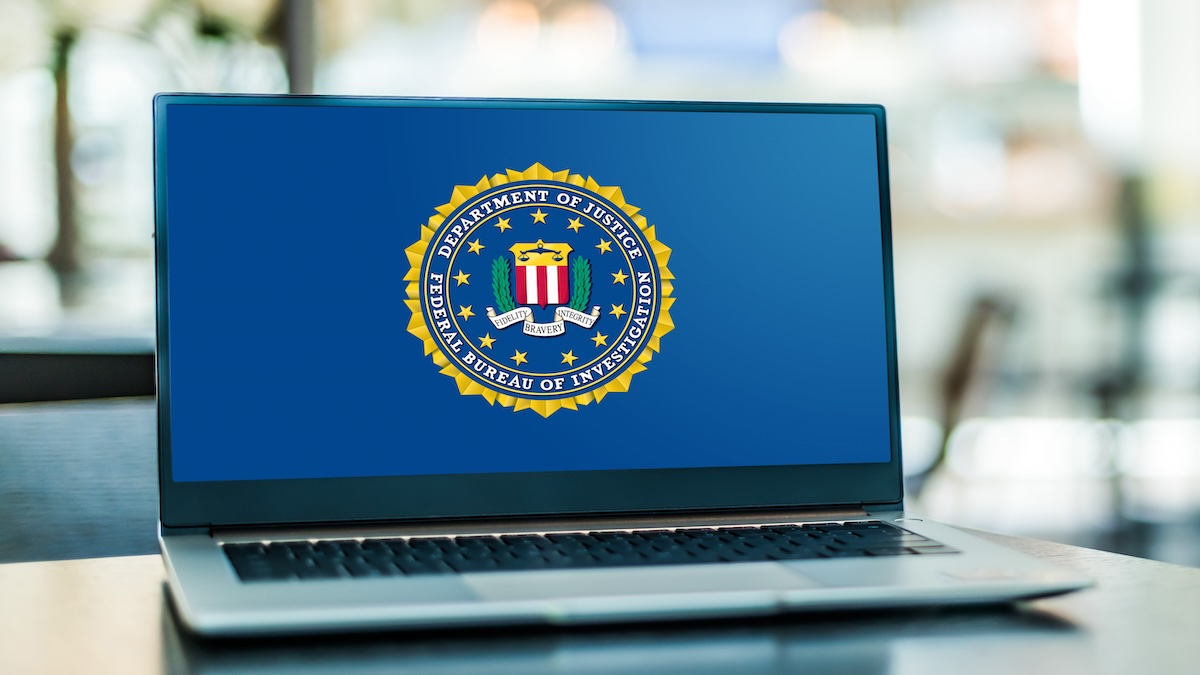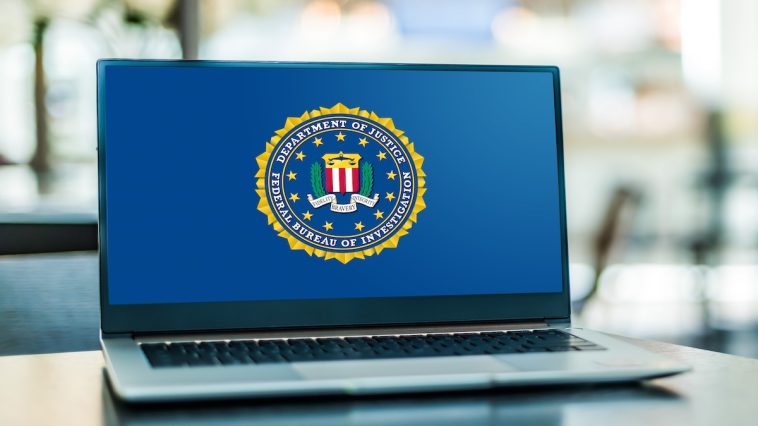
Cybersecurity at a Crossroads: The End of an Era?
The clock is ticking on one of America’s most essential cybersecurity protections, and if Congress fails to act before September 30, 2025, our nation’s digital shield may suddenly lose a key component that has long helped keep our networks secure. The Cybersecurity Information Sharing Act of 2015 (CISA 2015) has quietly fostered rapid and safe information sharing between the government and private companies—and that has prevented countless cyber threats. In this opinion piece, we examine how the potential expiration of CISA 2015 could create a domino effect that jeopardizes small businesses, healthcare institutions, and ultimately, the economic and technological leadership of the United States.
While lawmakers from both sides acknowledge the crisis at hand, there is an uncomfortable reality: without a clean reauthorization, the law’s lapse will expose organizations to a surge of cyberattacks. With smaller firms often already exposed to nerve-racking disruptions, the oncoming changes represent an intimidating challenge that we must address together.
Small Business Cybersecurity Vulnerability: A Ticking Time Bomb
Small and medium-sized businesses (SMBs) form the backbone of the American economy, employing nearly half of the private sector workforce and contributing a significant portion of the nation’s GDP. The loss of CISA 2015’s key protections is poised to create a situation where small businesses, already facing overwhelming competitive challenges, may be forced to weather a series of devastating cyberattacks. Without the information sharing shield, SMBs would lose a key early warning system that has kept them one step ahead of emerging threats.
Why Information Sharing Matters for SMBs
There are several reasons why the rapid sharing of cybersecurity intelligence has been a game changer for small firms:
- Early Alerts: Timely updates regarding new malware and advanced ransomware tactics help companies take corrective measures before an attack escalates.
- Liability Protections: The act provides companies with essential legal cover when sharing sensitive threat information, allowing them to communicate without fearing severe legal repercussions.
- Antitrust Safeguards: Cross-industry collaboration enables companies to pool resources and insights, all through a system that protects fair competition.
Without these layers of safety, SMBs may find themselves less capable of getting around or managing the sudden twists and turns thrown by cybercriminals. Recent studies have shown that ransomware attacks are intimidatingly expensive for small businesses—costing an average of $432,000 per incident. With minimal cash reserves and limited capacity to handle extended downtime, many small establishments could face the risk of permanent closure after just a few weeks of disruption.
Potential Economic Fallout
The repercussions of letting CISA 2015 expire go well beyond isolated cyberattacks on individual businesses. When 98% of claims arise from SMB-related policies and the total losses mount into billions, America’s economy could be severely affected. In a broader table below, we compare some key economic factors related to SMB cybersecurity challenges:
| Key Factor | Impact without CISA 2015 |
|---|---|
| Average Ransomware Attack Cost | $432,000 per incident |
| SMB Cyber Insurance Claims | 98% contribution |
| Total Financial Losses | $1.9 billion+ |
| Time to Failure Post-Attack | 3-4 weeks operational downtime |
In the absence of effective information sharing, the economic ripple effects of a fragmented cybersecurity strategy could be enormous—directly impacting the prosperity of communities nationwide.
Healthcare Under Siege: When Cyberattacks Threaten Lives
The stakes of cybersecurity extend far beyond corporate balance sheets. Nowhere is the danger more tangible than in the healthcare sector, where attacks on hospitals and health systems have life-or-death implications. Recent research has revealed that ransomware attacks have had tragic outcomes, with estimates suggesting that between 42 and 67 Medicare patients lost their lives in the wake of disrupted systems.
How Hospitals Benefit from CISA 2015
In a field where every minute is super important, the ability to get into and share detailed threat intelligence becomes not just a business advantage but a critical necessity. CISA 2015 has enabled healthcare organizations to:
- Receive Immediate Threat Notifications: When cybercriminals target hospitals, early warnings can minimize data loss and ensure that emergency protocols are quickly enacted.
- Strengthen System Resilience: With regular updates about evolving attack methods, healthcare providers can fine-tune their defenses and patch vulnerable systems faster.
- Collaborate Across Sectors: Hospitals are better equipped to work with government agencies and cybersecurity experts, creating a network of mutual aid that saves lives.
If CISA 2015 expires, hospitals could rapidly become sitting ducks, with delayed responses resulting in system failures at critical moments. The consequences of such delays could be catastrophic in a medical emergency, where even slight differences in setup time could be the difference between life and death.
The Human Cost of Cyberattacks
Beyond the statistics, the human element of these cyberattacks is deeply troubling. Cybercriminals know that healthcare institutions will be forced to pay quickly to avoid putting patients at risk, making hospitals a prime target. With a less coordinated defense structure, healthcare becomes a perilous landscape—full of problems that put both the finances of vulnerable institutions and the lives of patients on the line. In short, the expiration of CISA 2015 threatens to take away a must-have layer of security that many consider indispensable in today’s interconnected world.
Economic Ripple Effects: The Bigger Picture
Small businesses and healthcare facilities are critical threads in the fabric of the nation’s economy. As nearly 99% of U.S. businesses are SMBs, any vulnerability in the cybersecurity framework can send shockwaves through the entire economic system. According to the U.S. Chamber of Commerce, SMBs contribute 43.5% of the country’s GDP, underscoring the fundamental role they play in overall economic well-being.
How a Cybersecurity Lapse Could Impact the Economy
A lapse in CISA 2015 could catalyze a cascade of issues that may prove challenging to fix. Consider these specific economic challenges:
- Job Loss: With SMBs responsible for employing a significant slice of the workforce, widespread cyberattacks could lead to layoffs and even permanent closures.
- Reduced Innovation: America’s technological leadership is closely linked to robust threat intelligence sharing. If companies lose the ability to access comprehensive data on evolving threats, their competitive edge in developing superior products could erode.
- Investor Uncertainty: A weakened cybersecurity framework could dampen investor confidence in sectors that are already on guard against economic unpredictability, leading to reduced capital inflow.
In a nutshell, the underlying economic structure that supports innovation and growth becomes even more tangled with issues as vulnerabilities persist. Without a dependable system for sharing important cyber intelligence, we may find it increasingly difficult to steer through these troubled times.
Table: Comparative Economic Impacts
| Aspect | With CISA 2015 Reauthorization | Without CISA 2015 Reauthorization |
|---|---|---|
| Cyber Attack Response Time | Rapid and coordinated | Delayed and disjointed |
| SMB Operational Continuity | High resilience due to early alerts | Low resilience; vulnerability to extended downtime |
| Healthcare Response | Enhanced readiness leading to fewer critical failures | Potential for life-threatening delays |
| Innovation in Cybersecurity | Robust collaboration driving new solutions | Stifled development due to fragmented intelligence |
National Security and Global Competitiveness
Beyond the immediate economic challenges lies a broader issue: America’s global standing as a cybersecurity leader. The bipartisan agreement on the necessity of reauthorizing CISA 2015 is not just an internal policy discussion—it’s a matter of national security. Our cybersecurity companies have long led the world, and much of that supremacy comes from having access to comprehensive and mutually shared threat data.
Building a Collaborative Future for Cyber Defense
One of the most essential elements of CISA 2015 has been its promotion of a cooperative approach between government and businesses. As someone who has spent years on both sides of this equation—first leading public-private partnerships within the FBI and later facilitating industry collaboration—I have witnessed how this system creates a culture where shared defense becomes the norm, not the exception. Some of the key benefits include:
- Mutual Aid: The simple yet effective idea that “we can’t help you if we don’t hear from others” has been core to the law’s success.
- Shared Responsibility: Collaborative models mean that the burden of cyber defense is distributed, making everyone less vulnerable to individual threats.
- Innovation Driven by Data: With access to detailed intelligence, cybersecurity firms can design better products that keep America ahead of foreign competitors.
If the current framework crumbles, we risk not only compromising individual businesses but also diminishing our competitive edge on the international stage. Other nations have carefully modeled their systems after our successful model, and the loss of this advantage could erode America’s role as the must-have standard-bearer in digital defense.
Global Implications of a Weaker Cyber Framework
Allowing CISA 2015 to sunset without a thoughtful reauthorization sends a dangerous message to both allies and adversaries alike. International competitors will seize the moment to refine their own security infrastructures while the United States struggles to patch up the gaps left by the absence of a coordinated information sharing system. This shift could have several far-reaching effects:
- Reduced International Collaboration: With less transparent sharing protocols, diplomatic and strategic relationships in the cyber realm could falter.
- Emergence of Alternate Models: Other nations might develop alternative systems that, while effective in the short term, could eventually challenge America’s long-held supremacy in cybersecurity technologies.
- Shift in Global Power: Cybersecurity is now a key marker of global power, and the erosion of America’s protective measures could have a cascading impact on its overall geopolitical influence.
The international community watches closely as American leaders debate the future of critical cybersecurity legislation. It remains super important that our elected representatives understand that the benefits of reauthorizing CISA 2015 extend well beyond domestic concerns—they are a cornerstone of our national defense strategy.
The Legislative Path Forward: Clean Reauthorization and Beyond
Despite the many intertwined and sometimes overwhelming challenges, there is widespread bipartisan agreement among experts that CISA 2015 must be reauthorized. With voices from across the political spectrum affirming its worth, the next challenge is ensuring that the reauthorization is both straightforward and resilient enough to accommodate the inevitable technical improvements in our rapidly evolving cyber environment.
Key Legislative Priorities
When thinking about what a modernized CISA might include, policy makers could focus on the following priorities:
- Preserving Liability Protections: Maintaining the safe harbor that encourages early sharing is crucial. Companies must be able to signal emerging threats without fearing legal repercussions.
- Ensuring Antitrust Safeguards: Ironing out any tangled issues around industry collaboration will be important to avoid the creation of monopolistic practices.
- Implementing Clear Data Protocols: Lawmakers should figure a path that clarifies data sharing rules without creating complicated pieces of red tape that might stifle innovation.
- Future-Proofing the Legislation: A proactive approach that allows for future technical and cyber threats to be addressed without having to overhaul the entire system is key.
These steps, though they may involve some nerve-racking negotiations and challenging decisions, represent an essential part of moving forward. A reauthorization that touches on these fine points could reinforce the protective net that U.S. businesses and critical infrastructure depend on daily.
How Congress Can Act Swiftly
The recommendations from security experts are clear: Congress must act before the looming deadline. The cleanest and most effective path forward is to pass a straightforward reauthorization bill, preserving the core framework that has been proven to yield billions of dollars in prevented losses. Policymakers should avoid adding layers of new regulation that might create tangled issues or off-putting barriers for businesses already grappling with enough challenges. Instead, the focus should be on reinforcing the system as-is, while leaving room for necessary adjustments that address the subtle details of new technological threats.
Embracing a Culture of Shared Defense: Why Change Isn’t Optional
The expiration of CISA 2015 is not merely a regulatory hiccup—it represents a fundamental threat to the cooperative spirit that has helped forge America’s cybersecurity strategy. The approach has always been simple: by sharing threat information and working together, businesses and government agencies have built a robust defense mode that benefits everyone. As cyber criminals become increasingly sophisticated and emboldened, abandoning this model would be akin to leaving your front door wide open.
The Benefits of a United Cyber Front
When we work together on cybersecurity, we all benefit. Here are some of the key advantages of maintaining a collaborative information-sharing regime:
- Collective Intelligence: Detailed threat data from diverse sources leads to smarter, faster, and more accurate defenses.
- Reduced Risk: With early warnings, companies can preemptively secure their systems, reducing the overall risk of catastrophic attacks.
- Economic Efficiency: Preventing breaches before they occur saves millions in damage control and recovery efforts—a win for the entire economy.
- Global Leadership: By continuing to lead in cybersecurity innovation, the U.S. solidifies its reputation on the world stage, encouraging partnerships and investments across borders.
This cooperative approach has allowed us to tackle the overwhelming challenges presented by complex cyber threats. It’s a model that relies on mutual aid—an imperative in times when the consequences of inaction are frighteningly high. As one former public servant put it, “We can’t help you if we don’t hear from each other.” This sentiment, tested over time, reinforces the need to keep the channels of communication open and robust.
Looking Ahead: Preparing for Future Cyber Threats
The debate over CISA 2015 is a reminder that cybersecurity is an ever-evolving landscape. With each new technological breakthrough come new, sometimes intimidating, challenges. As we take a closer look at the future, there are several trends to keep in mind:
Emerging Threats and the Need for Agility
The digital realm continues to shift rapidly, and with it, the fine points of cybersecurity. A few trends that experts warn require immediate attention include:
- Advanced Ransomware Tactics: New variants are constantly emerging, making it imperative for defenses to be as nimble as they are robust.
- Supply Chain Vulnerabilities: In an interconnected world, cybercriminals will increasingly target the lesser-defended segments of supply chains, anticipating that a breach in one area can compromise the whole network.
- Artificial Intelligence Misuse: As AI technology advances, so do the methods by which cyber attacks are executed. Staying ahead of these innovations is critical.
In response, both government and industry must engage in ongoing dialogue, constantly reviewing and adjusting protocols to keep up with these evolving threats. Technology will always be a double-edged sword, offering both opportunities for growth and challenges that require us to figure a path through new, often tangled issues.
Investing in Next-Generation Security
Along with reauthorizing the current framework, a parallel investment in next-generation cybersecurity innovations is imperative. By supporting research and development in the realm of cyber defense, we can ensure that America not only recovers its current protective edge but also transforms it into a dynamic shield capable of resisting future challenges. Some areas that deserve priority are:
- Machine Learning-Based Threat Detection: Harnessing the power of AI to predict and prevent breaches before they occur.
- Real-Time Cyber Intelligence Platforms: Systems that integrate data from multiple sources to provide rapid response recommendations.
- Advanced Network Security Solutions: Innovative approaches to protecting data flows and securing remote work infrastructures.
With robust funding and a clear legislative mandate, both public and private stakeholders can join forces to create the next wave of cybersecurity solutions that emphasize collaboration and shared resilience.
Conclusion: The Time to Act Is Now
In conclusion, the potential expiration of CISA 2015 represents far more than a bureaucratic footnote—it is a harbinger of a testing time for American businesses, healthcare institutions, and the national security apparatus. The proposed reauthorization is not just about preserving a piece of legislation; it is about maintaining a cooperative defensive network that has been indispensable in staving off countless cyberattacks.
For small businesses battling nerve-racking cyber threats, for hospitals where even minute delays can be fatal, and for the overall health of our economy—a strong, unified cybersecurity framework is not optional. Rather, it is essential. Now is the super important moment for policymakers, industry leaders, and every stakeholder to work together, preserving an information-sharing ecosystem that keeps our nation resilient against ever-changing threats.
In these uncertain times, as we face a future filled with both opportunities and intimidating challenges, let us remember that progress in cybersecurity hinges on collaboration and shared responsibility. We must not allow our digital defenses to weaken. Instead, we should seize this chance to reauthorize, refine, and reinforce a framework that will ensure America remains a leader in the global cybersecurity arena.
As we look ahead, let us take a closer look at what this means for every business, every hospital, and every citizen. The time for action is now—before the attacks that could have been prevented become the disasters we failed to stop.
Originally Post From https://fortune.com/2025/08/17/former-fbi-cybersecurity-ransomware-law-expire/
Read more about this topic at
Cyber Shield 2025 | Article | The United States Army
Cyber Shield 2025

